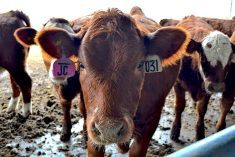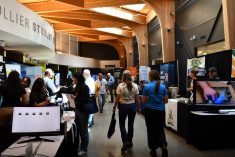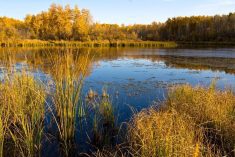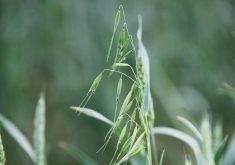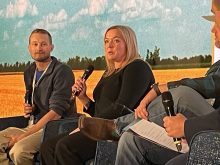The iconic Ranchmen’s Club in Calgary was the scene last month of one of the most significant donations of ranchlands for research in Canadian history. The University of Alberta received the 12,300-acre Three Walking Sticks Ranch near Duchess from Edwin and Ruth Mattheis, both alumni of the university.
The Mattheises acquired the 19-section ranch, 150 kms east of Calgary, in 1977. The ranch also includes land where the John Ware, the legendary African-American and later African-Canadian cowboy once lived. Besides the land, the ranch includes repair shops, grain storage bins and a six-pivot irrigation system that cover the ranch’s 700 acres of cultivated land. Over the years the Mattheises have expanded the grazing capacity of the ranch to 1,000 cows.
Read Also
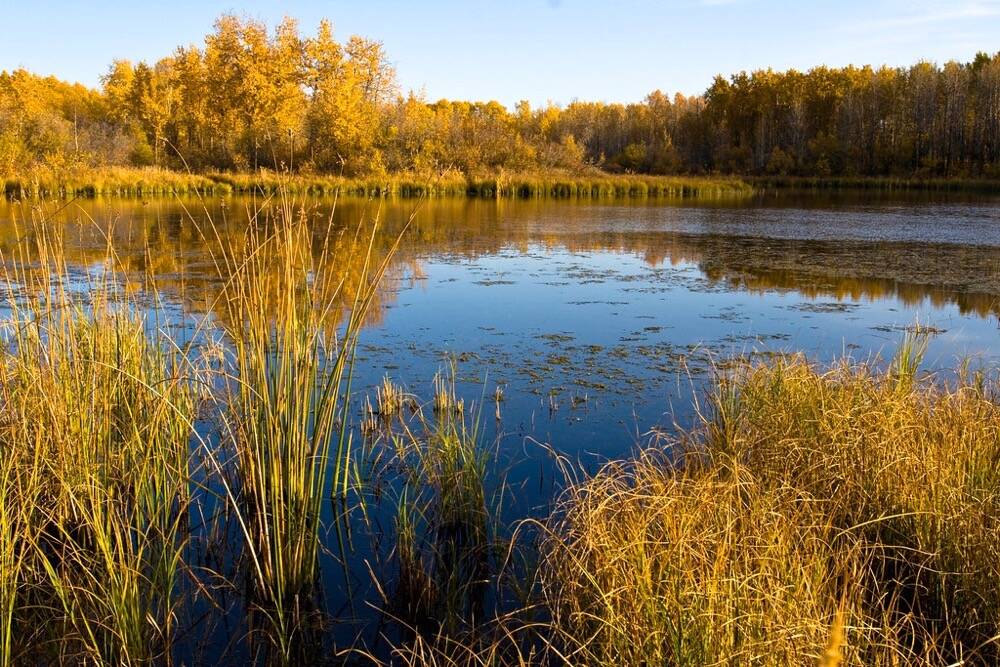
Alberta boosts investment in wetland restoration
The province plans to add 67 hectares of new wetlands to strengthen natural flood and drought defences and improve water quality.
Preservation of the land as a ranch and environmental concerns were the main drivers in the couple’s decision to donate the land. As part of the arrangement the family will have life tenancy to live on the ranch.
“We didn’t want to see the land subdivided, we didn’t want to sell it, we wanted to see it preserved,” said Ruth Mattheis. The land was donated to the University of Alberta because of its agriculture faculty. “The University of Calgary does not have the depth of experience in this field, we felt lucky that the U of A listened to us,” said Edwin.
The ranch will now house the university’s new Rangelands Research Institute. In honour of this donation the university will also create the Mattheis Chair in Rangeland Ecology and Management. The chair will spearhead the development of the institute and will establish a research, teaching and extension program in various aspects of applied ecology, grazing management, livestock husbandry and production economics for the mixed-grass prairie region.
More specific studies will include soil science, water management, carbon storage, wildlife habitat, land reclamation and climate change impacts on rangelands.
The ranch is a microcosm of southern Alberta. It has a diversity of ecosystems and habitats; it has a rich variety of plant life, including cool-season temperate grasslands and warm-season vegetation more commonly associated with grasslands in southern regions of North America.
In accepting the donation UofA President Indira Samarasekera called it an historic day and the size of the gift makes it unprecedented. “It also reinforces the University of Alberta’s position as a university with an Alberta-wide focus. We have and will continue to focus our research and educational efforts and deliver programs that are provincial in scope,” she said.
An inventory of vegetation types found on the University of Alberta’s Rangelands Research Institute – Mattheis Ranch, as it will be known, was done last summer. As well, a research project that is examining the growth dynamics of the two dominant grasses on the ranch – needle-and-thread grass and western heat grass – was also initiated. More research projects will take place beginning next summer.
With this gift, the UofA becomes the only Canadian university, and one of a select few in North America, that has this amount of range land and infrastructure. The Mattheis Ranch complements the university’s existing infrastructure which includes another 12,000-acre ranch near Kinsella, in central Alberta, the 800-acre St. Albert Research Station used for crop research, and the Breton Plots near Breton used for soil research.
———
“Wedidn’twanttoseethelandsubdivided,wedidn’twanttosellitwewantedtoseeitpreserved.”
Ruth Mattheis


